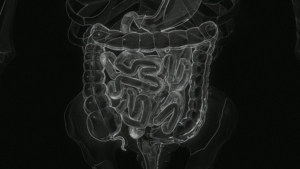Trading medical cannabis in Europe
The regulatory situation regarding the trade of medicinal cannabis currently varies enormously from country to country within the European Union. Unfortunately, there is still no full regulatory harmonization on a European level.
This is particularly problematic with regard to the question of when a cannabis product is classified as a non-marketable narcotic and when it is not. The decision on the marketability as a medicinal product is made by each Member State of the European Union individually. Thus, the various national regulations differ significantly. In some countries, cannabis is only marketable as a finished medicine, in others only if it comes from a cultivation in compliance with the requirements of the UN Single Convention on Narcotic Drugs of 1961, or medicinal cannabis may also not be marketable at all.
Trade barriers
Accordingly, the hurdles for international trade within the European Union are high. Even though there are identical European quality requirements for pharmaceuticals with regard to Good Agricultural and Collection Practice (GACP) and Good Manufacturing Practice (GMP), and even though the UN Single Convention created uniform multilateral basic requirements, the inconsistent legal situation clearly hinders trade.
The same applies to cannabidiol (CBD) products. Although there is a harmonization of the legal situation at European level with regard to novel food (Regulation (EU) 2015/2283) and cosmetics (Regulation (EC) No 1223/2009), the classification of whether a CBD product falls under the respective national narcotics law or is exempt from it is up to each country individually.
Some new developments in this regard are that the Commission on Narcotic Drugs (CND) recently decided on moving cannabis from Annex IV to Annex I and decided against completely deleting CBD products with a THC content below 0.2 per cent from the Single Convention. Preparations containing predominantly CBD are thus further subject to international control. However, the European Court of Justice (ECJ) stated in its ruling of November 19, 2020, that CBD extracted from the whole Cannabis sativa plant was not an addictive substance within the meaning of the UN Single Convention.
Aiming at a coherent legislation
Whether the latest decisions of the CND and the ECJ will have an impact on national regulations and whether further harmonization will take place at European level will become clear in the future.
For this reason, the newly founded European Cannabis Association (ECA) helps to ease the way for a complete harmonization of the regulatory landscape regarding the trade in medicinal cannabis in Europe and acts in the interest of all stakeholders in the European medicinal cannabis industry for simpler regulations.
Peter Homberg is a partner in the Dentons Berlin office. He focuses on life sciences, IP, corporate law, and M&A transactions in the life sciences and high-tech sector, as well as in R&D and cooperation agreements, cross-border IP licensing, and IP strategies. He has extensive experience providing legal advice on compliance issues. Additionally, he is the head of the European Cannabis sector group.
This text was originally published in the European Biotechnology Magazine Spring 2021.


 Unsplash+
Unsplash+
 Unsplash+
Unsplash+